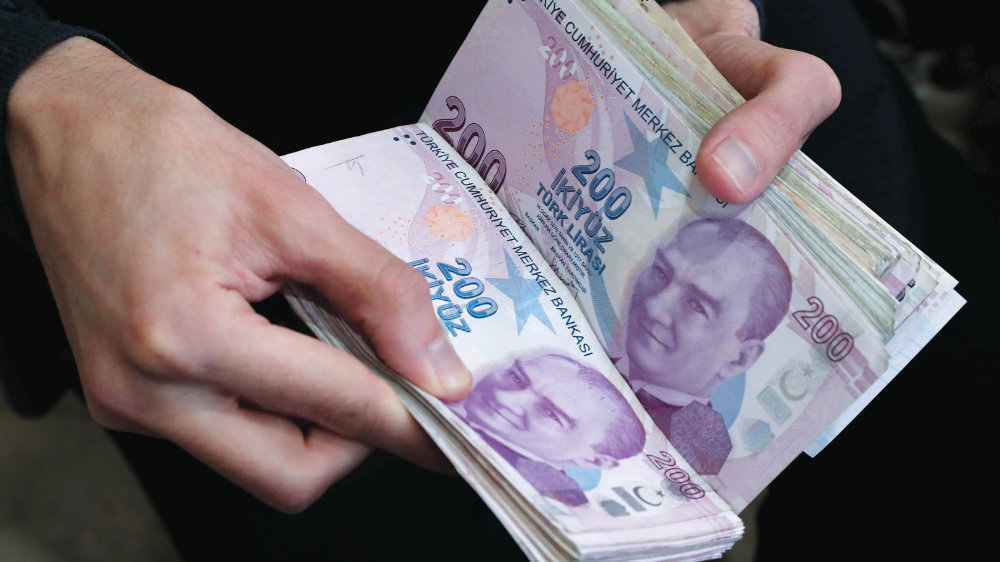ANKARA: The Erdogan government has poured Turkish liras into northern enclaves of Syria under its military control ahead of fresh US sanctions under the Caesar Act targeting President Bashar Assad’s regime.
Since early June, Turkish banknotes have been put into circulation through local branches of Turkey’s postal service operating in northern Syria, while public servants are also paid in Turkish currency, and fuel and basic food items are priced in lira.
However, experts believe the currency shift aimed at sidelining the Syrian pound by establishing a de facto Turkish lira zone will depend on support from the US.
Prof. Michael Tanchum, a senior fellow at the Austrian Institute for European and Security Policy, said the immediate aim of supplying Turkish lira to areas under its control is to minimize the negative economic impact of the Caesar Act’s sanctions, which kicked in on Wednesday.
“However, the move helps to facilitate the payment of the Syrian National Army in Turkish lira, as the more widely the Turkish currency is used, the need to convert salaries into Syrian pounds to buy basic items becomes reduced,” he told Arab News.
Hayat Tahrir Al-Sham (HTS), the extremist group controlling Idlib province, also began using Turkish liras.
“The HTS-backed rebel government in Idlib province once contemplated switching to US dollars, but the scarcity of dollars — particularly as there is a global rush on dollars because of the COVID-19 pandemic — makes the lira an attractive alternative,” Tanchum said.
Ankara has welcomed US sanctions in the hope it will lead to the collapse of the Assad regime.
Tanchum said that if Ankara can create a Turkish lira zone in areas of Syria it dominates militarily, then Turkey will entrench its influence in Turkey for the long term.
“For this to happen, the areas under Turkish control would have to generate more income from exports to Turkey. Currently, most of the sales of goods in Turkish-controlled areas are to areas under Syrian government control,” he said.
However, Tanchum said that Turkey’s ability to circulate more of its currency depends ultimately on additional US dollars being made available to Ankara.
“In that sense, a Turkish lira zone in Syria may require the tacit consent of Washington,” he said.
Navvar Saban, an analyst at the Omran Center for Strategic Studies in Istanbul, said that putting Turkish liras into circulation in Syria is a precaution against economic fallout because of US sanctions.
“That move was being examined even before the Caesar Act because the Syrian pound was in decline, along with economic problems and internal troubles between Assad and Syrian business people,” he told Arab News.
Trade contacts between the Syrian regime and the rebels in opposition-held areas were also reduced, diminishing the amount of Syrian pounds.
According to Saban, the move will also discourage selling dollars on the black market.
Before the sanctions began, the Syrian currency lost almost 44 percent of its value, while food pries tripled in a year.
“US dollars were in higher use in the opposition-held northwestern areas and its rate was higher before Turkish liras replaced it. But I don’t think that this move will sideline the Syrian pound, it is just a precaution for the moment,” Saban said.
US Secretary of State Mike Pompeo recently said that the US pressure campaign was “in full cooperation with other like-minded countries.”



